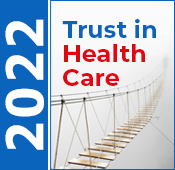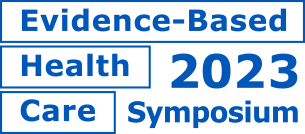11. International EBHC Symposium 2016
Interactions between HTA, coverage
and regulatory processes
Krakow, 12-13 December 2016
11. International EBHC Symposium took place in Krakow on December 12th and 13th, 2016 in Park Inn Hotel.
All health care systems in CEE countries are currently undergoing dynamic transformation and therefore the directions of changes within the strategic frame are the subject of heated discussions. Furthermore, integration between social, developmental and purely scientific sectors is sought after.
The main reason for changes has been the same for years: the growing crisis of operating costs. While in the past years we focused on different methods of tackling the crisis – from increasing HTA significance, through insurances or harmonising the benefits package – this year we will focus on seeking ways to integrate remedial measures and processes of health care system management. Fixing cash flow problems is similar to repairing a water–supply system – it is not truly fixed until all the holes, not only the biggest and most visible ones, are caulked and filled. We need to look for new values, crucial for decision–making with regards to shaping the guaranteed benefits package (both drug and non–drug technologies) so as to put it into a common legal and financial frame covering reimbursement, participation of science and research and patients’ needs.
In line with this year’s theme we disscused the effectiveness of legislation and implementation processes for introduction of changes in the light of the system’s inertia, the size of the area submitted to regulations and the necessity of engaging different groups of stakeholders.
We need to look for new values, crucial for decision–making with regards to shaping the guaranteed benefits package (both drug and non–drug technologies) so as to put it into a common legal and financial frame covering reimbursement, participation of science and research and patients’ needs.
Przy okazji 11. edycji po raz pierwszy zaproponowaliśmy stałą dyskusję wśród gości EBHC oraz zorganizowaliśmy Forum Ekspertów z krajów regionu CEE.
Partners
11. International EBHC Symposium 2016
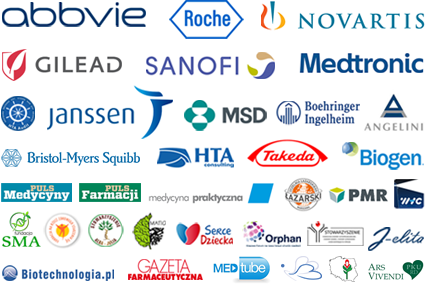
Sessions
11. International EBHC Symposium 2016
The programme of the Symposium will be implemented in five thematic sessions over the course of two days:
- A roadmap for the process of reimbursement and tariffing of health benefits
- CEE Forum: Value-based decision making in CEE countries
- Tools for managing the guaranteed benefits package
- Medical devices: prices, benefits, tariffs
- Better access to services of rare diseases
Przyjęta formuła Sympozjum zakładała dłuższy czas na dyskusję z wybitnymi ekspertami zagranicznymi, co umożliwiło uczestnikom skorzystanie z ich wiedzy w szerszym zakresie niż ma to zazwyczaj miejsce w ramach tego rodzaju spotkań.
Session 1. A roadmap for the process of reimbursement and tariffing of health benefits
The first session titled: “A roadmap for the process of reimbursement and tariffing of health benefits” will cover the planned changes in the field of reimbursement solutions for drugs and medical devices. We will also investigate tools for their implementation – HTA and tariffing and ways to unclutter the package, including elimination of technologies. Apart from national experts, we will host speakers from Hungary, Slovakia, Romania and Bulgaria – countries which are currently building the basis for future changes and are undergoing a constant transformation. .
Due to its exceptional educational value, the participation in the first session will be free of charge. This way we want to encourage those who cannot take part in the entire Symposium – students and fellow scientists – to participate in the event. It is an opportunity to establish direct contact with representatives of the Polish Ministry of Health and The Agency for Health Technology Assessment and Tariff System (AOTMiT). We hope for a lively discussion after the session.
do góry
Session 2. CEE Forum: Value-based decision making in CEE countries
Due to constant modifications of drug policies in CEE countries, during the 11th edition of the Symposium we decided to make the annual meeting of evidence-based healthcare experts from this region a permanent item on the agenda.
A periodic discussion on pricing and reimbursement decision-making in the CEE countries enabled an interchange of experiences related to the introduction of particular modifications and allowed us to learn about existing good practices used in specific European countries. The EBHC Symposium, which is a forum for meetings, serves as a platform for an interchange of experiences and helps improve and creatively adjust the best solutions which have been implemented in other countries.
We invite experts in the field of Health Technology Assessment from countries such as: Sweden, Hungary, Slovakia, Poland, Czech Republic, Serbia and Romania.
The session was moderated by Brian Godman – an expert cooperating with the WHO, the government administration and health insurance companies with the aim to optimise the benefits from using limited resources. His speech presented value-based reimbursement decision-making in European countries, with particular focus on the Central and Eastern Europe countries (CEE).
- Dávid Dankó – partner in a Hungarian research and consulting company which provides advisory in the area of pharmaceutical policy and analyses the medical devices market in the CEE region. He delivered a speech on the principles of sustainable development in reimbursement systems of Central and Eastern Europe countries.
- Maria Psenkova presented the Slovakian reimbursement system. She also talked about her experiences gained in the many years of managing pharmaceutical companies.
- Jaroslav Duba shared his experience of the nine-year-long process of introducing a transparent pricing and reimbursement system in the Czech Republic. He also shared his thoughts on sustainability and stability of access to the market from today’s perspective.
- Tanja Novakovic – an expert specialist in the field of Health Technology Assessment, President of the Pharmacoeconomics Section within the Pharmaceutical Association of Serbia, explained the importance of innovation in decision-making processes.
- Ileana Mardare presented the solutions, both existing and those planned for the nearest future, used in health technology assessment and reimbursement decision-making in Romania.
- Magdalena Władysiuk – President of CEESTAHC, delivered a speech on Poland's experiences.
Wystąpienia wszystkich prelegentów zostały podsumowane dyskusją kończącą pierwszy dzień Sympozjum. top
Session 5. Better access to services of rare diseases
This year’s Symposium paid special attention to rare diseases.
Rare diseases are, in accordance with the definition adopted in the European Union, severe and often life-threatening conditions which affect not more than 5 in 10,000 people.
Currently about 8,000 rare diseases have been identified. This number is still growing due to the progress made in the field of genetics. It allows us to understand the mechanism of diseases which previously remained unexplained. Over 80% of rare diseases are genetic disorders and 50% of new diagnoses concern children. Many patients suffer from co-morbidities – this makes diagnosis and treatment even more difficult.
In accordance with the European Commission’s estimates, rare diseases affect 6-8% of the population. Thus there may be even 2-3 million people suffering from rare diseases in Poland, which makes us wonder whether rare diseases are becoming, to some extent, common conditions. Brought together, rare diseases constitute a serious social problem and an extraordinary challenge for the health care and social security system. Only a few rare diseases such as haemophilia and cystic fibrosis have been covered with multi-specialist treatment programmes.
Rare diseases are not as appealing as common conditions to the medical environment because even medical practitioners interested in the topic may never come across such a case. Knowledge about these diseases is still relatively limited and dispersed in narrowly specialised centres. This limited knowledge and scarcity of experts specialising in specific conditions result in difficult access to diagnosis and treatment – the diagnosis itself may drag on for many years. This is why it is vital to implement actions thanks to which patients suffering from rare diseases will no longer face hindered access to healthcare.
The last session focused on answering questions about the current situation as to access to health technologies used in rare diseases, what actions should be taken to facilitate access to primary and secondary healthcare and the challenges faced by researches and the government in connection with the specificity of such conditions.
Both Polish and foreign experts were invited to the discussion.
- Alastair Kent – director of Genetic Alliance UK – an organisation which supports patients and families affected by genetic conditions.
- Piotr Czauderna – paediatric surgeon, former President of the Polish Association of Paediatric Surgeons and the International Childhood Liver Tumours Strategy Group (SIOPEL). Currently, he is a member of the National Development Council established by the President of Poland.
- Alicia Granados Navarrete – Head of Global Health Technology Assessment (HTA) Scientific Strategy at Sanofi Genzyme, lecturer at the Medical Facility of University of Barcelona.
- Mieczysław Walczak – national consultant in the field of paediatric endocrinology and diabetology and head of the Clinic of Paediatrics, Endocrinology, Diabetology, Metabolic Diseases and Cardiology of the Developmental Age at the Pomeranian Medical University.
- Maria Libura – head of the Institute of Interdisciplinary Studies on Rare Diseases at Łazarski University, lecturer at the Centre for Postgraduate Education at Łazarski University, President of the Polish Association for Patients with Prader-Willi Syndrome, health expert of the Centre of Analysis of the Jagiellonian Club.
We have also invited non-governmental organisations to participate in the discussion to help cover all aspects and problems regarding availability of diagnostics and treatment of rare diseases. To date the following organisations have confirmed their participation:
- Watch Health Care Foundation (WHC) http://www.korektorzdrowia.pl/
- SMA Foundation https://www.fsma.pl/
- Dina Radziwiłłowa The Heart of a Child Foundation http://www.sercedziecka.org.pl/
- Alba-JuliaAssociation of patients suffering from Neurofibromatosis type I and other neurocutaneous disorders http://alba-julia.pl/
- Orphan Rare Diseases Poland http://www.rzadkiechoroby.pl/
- Healthy Aging Foundation http://www.zdrowestarzenie.org/
- Polish Association for Patients with Phenylketonuria and Rare Diseases Ars Vivendi http://www.fenyloketonuria.org/
- Polish Association of Patients with Pulmonary Hypertension and Friends http://www.tetniczenadcisnienieplucne.pl/
Speakers
11. International EBHC Symposium 2016
Biogram notes

Managing Partner in Sequence, a Polish research and consulting company which operates in the healthcare area. Expert in the health market – he specialises in financing and strategy as well as in the pharmaceutical market. He has 25 years of experience in market research and consulting for the healthcare market. He has been with Sequence since 2008 and before that he was head of the Polish and Central European Department of IMS Health and managed Azyx, a research company, for many years. Author of various publications related to the Polish healthcare market, with particular focus on the pharmaceutical market. He graduated from Medical University of Warsaw and obtained his MD degree in 1985. top
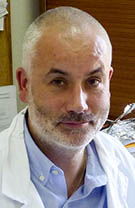
He is head of the Department of Surgery and Urology for Children and Adolescents at the Medical University of Gdańsk. Associate professor of the Medical University of Gdańsk. In the years:
- 2006-2008 he was Representative of the Rector for the New University Hospital Programme at the Medical University of Gdańsk;
- 1996-2000 he was secretary of the General Assembly of the Polish Association of Paediatric Surgeons (PTChD),
- 2000-2003 – the secretary general of PTChD,
- 2003-2009 – head of the Gdańsk division of PTChD,
- 2009-2012 – President Elect of PTChD,
- 2012-2014 – President of PTChD;
- 2006-2012 he was head of the international Childhood Liver Tumours Strategy Group (SIOPEL);
- 2009-2015 he was Poland’s representative and member of the board of the Section of Paediatric Surgery of The European Union of Medical Specialists (UEMS)
- since 2016, president of that Section.
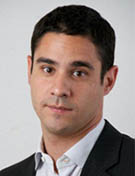
Dávid Dankó
Managing partner of Ideas & Solutions (I&S). He also holds a position as research leader at the Corvinus University of Budapest, Hungary, where he lectures pharmaceutical policy and funding.
Dávid has 13 years of experience in health care management & the funding of pharmaceuticals and medical devices. Until 2010 he was member of the executive team for pharmaceutical reform in Hungary as deputy director of reimbursement at the national health insurance fund. He speaks regularly at conferences and workshops on pharmaceutical and medical device policies, gives payer communication and negotiation trainings to multinational companies and authorities and he has co-edited a university textbook titled Pharmaceutical Reimbursement.
top
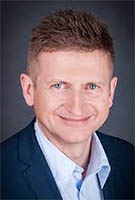
Jaroslav founded OAKS Consulting s.r.o. in 2009, after more then 15 years of experience in top management positions in Wyeth, Zentiva and Glaxo. OAKS Consulting has became in short time the leading consulting company providing full scope of services in Market Access in Czech Republic. The team currently consists of 15 specialists with professional background in medicine, pharmacology, mathematical modeling and health-economy. top

Wolfgang is a member of the management board of Medtronic Germany GmbH and is responsible for the areas of health economics, market access and health policy. He develops and evaluates strategies for Medtronic therapies and products, the market launch and initiates with the decision makers from medicine, politics and health insurance the establishment of new forms of cooperation for patient care. Due to the wide product spectrum of Medtronic GmbH, Mr. Frisch has experience in the field of inpatient, and ambulatory care. Mr. Frisch has been working in the medical technology industry for over 20 years. He was responsible for business development for Stryker GmbH & Co. KG in Germany, Austria and Switzerland and was responsible for the national key account and corporate account management of Dräger Medical AG. do góry
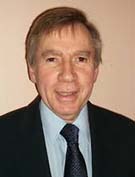
Brian works with the World Health Organization, governments, health authorities and health insurance companies across continents including Africa, Asia, Europe, Middle East, and South America to enhance prescribing efficiency within scarce resources. This includes potential ways to value and fund new medicines including those for cancer and orphan diseases incorporating suggested models to optimize their use post launch. This has resulted in multiple publications (over 150 listed in Pub Med since 2008) and presentations to address these key issues. top
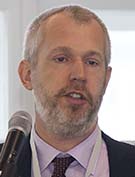
Current Director of the European Network for Health Technology Assessment (EUnetHTA) JA3 Directorate. Between 2010 and 2015 he was the Project Leader of WP5 of the EUnetHTA JA1 and JA2 on Relative Effectiveness Assessments. Until the beginning of 2013, he was also the Deputy Secretary of the Medicinal Products Reimbursement Committee at Dutch National Health Care Institute. He has a PhD in immunology and an advanced education in (pharmaco)-epidemiology and pharmaco-economics. He has more than 70 publications in peer-reviewed international journals. top

Since 2011 Head of Global Health Technology Assessment (HTA) Scientific Strategy at Sanofi Genzyme, company based in Cambridge, Massachusetts. Researcher and associate professor at the School of Medicine of University of Barcelona until 2007, entrepreneur, international specialist in technology assessment and health care systems, was responsible for the creation and management of the Catalan Agency for Health Technology Assessment and Research (CAHTAR). Director and general manager of the Catalan Institute of Health (ICS) and later Leader of the Health Evidence Network (WHO – European Regional Office). Bioregió (BIOCAT) Ambassador and of the International Society for Health Technology Assessment (HTAi) of which she was founder. She has been president of Forética and has more than 60 scientific and health care policy papers published in international peer review journals. Former President of Autonomous University of Barcelona’ Board of Trustees. Currently Dr Granados is also member of the Advisory Council for the Economic Growth of Catalan Autonomous Government since its creation in 2011 and since 2014 she also serves as President of Scientific Advisory Committee of AquAS (Catalan Agency for Quality and HTA). top
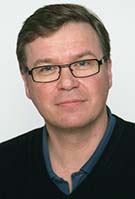
CEO of the NEPI foundation initiated by the Swedish Parliament in order to promote pharmacoepidemiology and health economics, co-localized and in close collaboration with the National Centre for Priority Setting in Healthcare. Specialist in clinical pharmacology and in infectious diseases/internal medicine. Chairman of the standing committee for pharmaceutical policies of the Swedish Society of Medicine. Member of the scientific advisory board of the Medical Products Agency in Sweden. Former member of the pharmaceutical benefit board of the Dental and Pharmaceutical Benefits Agency, TLV. Former member of the steering group of e-health at Swedish Association of Local Authorities and Regions. Former director of pharmaceutical strategies, County Council of Östergötland. top
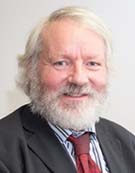
Alastair Kent came to Genetic Alliance UK over 20 years ago because he was excited by the challenge that new knowledge in genetics created - the idea that, for people affected by a genetic condition, yesterday’s science fiction is tomorrow’s clinical service improvement. Trying to transform these possibilities into positive outcomes whilst reducing the potential for abuse is an incredible challenge, and he feel incredibly privileged to work in this field. The fact that Genetic Alliance UK is now a respected and authoritative voice for patients and families is something about which he feel pride, and also a huge sense of responsibility. top
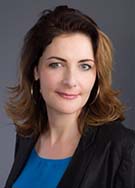
Katarzyna Kolasa, currently works as Senior Health Economics and Outcomes Research (HEOR) Director at GE. She has been working for healthcare sector for more than sixteen years now. She worked for AstraZeneca and BiogenIdec in both global and regional HEOR functions. At Bristol Myers Squibb and Lunbeck she was leading Market Access teams in CEE and Nordic Region. In the past she worked in Sweden, Switzerland and Finland. She holds a PhD degree in health economics and is an author of the number of publications in the field of health technology assessment and pharmacoeconomics. Katarzyna Kolasa is a reviewer for manuscripts submitted to Health Policy, Value in Health, Expert Review of Pharmacoeconomics & Outcomes Research and International Journal for Equity in Health. Her extensive knowledge in the field of health economics was acquired at University of York, University of Lund and University of Bergen as well as during International Doctoral Courses in Health Economics and Policy organized by the Swiss School of Public Health. Katarzyna Kolasa is DIA tutor for HTA courses, teacher at MBA in health program at Lazarski University, HTA training at Business School of Technical University in Warsaw and Adjunct at Nicolaus Copernicus University Collegium Medicum in Bydgoszcz. In addition to her role as a University teacher, she lead Equity study as a part of InterQuality project organized by Warsaw Medical University, funded under the European Union’s Seventh Framework Programme. She worked for World Bank regarding the hospital management project as well. Her practical skills in the field of health economics and insight into payers needs were developed during her six years employment contract at the Kalmar County Council in Sweden where she was responsible for a number of public health research programmes. top
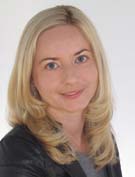
Expert in health technology assessment and health economics. For several years she has been specialising in quality assessment (audits) of analyses included in HTA reports. Author and co-author of systemic studies in healthcare and scoping aiming at determining the directions and scope of analyses required for reimbursement and pricing purposes. Partner in HTA Audit. Active instructor in the fields of EBM, HTA and Pricing in public institutions and the pharmaceutical industry. top
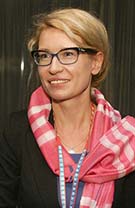
Director at the Lazarski University’s Institute of Interdisciplinary Studies for rare diseases, lecturer at the Postgraduate Education Centre, president of the Polish Association of Support for Prader–Willi syndrome (PWS) Patients, expert on health matters at the Jagiellonian Club’s Analyses Centre, vice-president of the Polish Society of Medical Communication. top
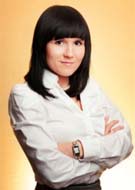
Deputy Director of Drug Policy And Pharmacy Department in the Ministry of Health, former Head of Analysis and Strategy Division in the Agency for HTA and Tariff System, Chief Expert in the National Health Fund (NHF) and Specialist in HTA Consulting. top
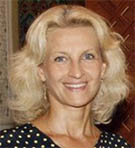
Currently, Senior Healthcare Consultant, both in public & private health related projects. Since 2015, Dr. Mardare is dedicated to medical education and personal development of the young professionals, as assistant professor in Public Health and Management Department, University of Medicine and Pharmacy „Carol Davila” Bucharest, Romania. Physician with both medical and Health Outcomes Research background, with a vast experience on healthcare and health system management. Along the 25 + years of activity, she had the opportunity to work and learn in various positions, at different levels - medical practitioner (Infectious Diseases Specialist), hospital manager, Medical Director of a County Health Insurance House, senior counsellor - Ministry of Health, Public policies Department and also in Pharma Industry - from Medical Representative to Senior Health Outcomes Manager/ Public Health Manager. As a result, she has a deep understanding of the Romanian Healthcare System in dynamics, from different perspectives, from big picture to tiny details that can make the difference. top
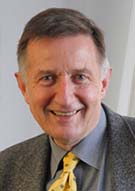
Professor Rafał Niżankowski, MD, PhD is a member of the European Working Group on Medical Angiology IUA. He is initiator of the angiology medical specialisation in Poland, co-founder of the Polish Angiology Society, creator and head of the Angiology Clinic of the Jagiellonian University. He is regional consultant on In the field of angiology and President Elect of the Polish Angiology Society. top
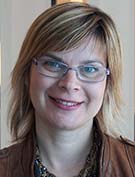
Since 2006 she is President of the Pharmacoeconomics Section within the Pharmaceutical Association of Serbia. Founder of the ISPOR Serbian chapter and between 2007 and 2009 its vice president. Tanja Novakovic is a graduate of the University of Belgrade, Faculty of Pharmacy finishing her postgraduate studies at the Faculty of Pharmacy at Ghent University in Belgium. Author of the “Handbook for pharmacoeconomic evaluations”, the first publication in the field of pharmacoeconomics in the Serbian language. Author of the first Guidelines for pharmacoeconomic evaluations for Serbia. Co-author in one of the three HTA reports first completed in Serbia, and was engaged to lead a group of experts to define all existing elements of basic benefit package in Serbia within the World Bank/Ministry of Health of Serbia projects. Tanja has organized and presented in many national meetings and international conferences which have resulted in international cooperation in education and the developing of pharmacoeconomics and HTA in Serbia. Handbook for pharmacoeconomic evaluations, pierwszej publikacji w dziedzinie farmakoekonomiki w języku serbskim oraz pierwszych wytycznych oceny farmakoekonomicznej dla Serbii. Współautorka jednego z trzech pierwszych raportów oceny technologii medycznych w Serbii. Była również przewodniczącą grupy eksperckiej, której zadaniem było zdefiniowanie wszystkich elementów pakietu świadczeń podstawowych w Serbii w ramach projektu Banku Światowego oraz serbskiego Ministerstwa Zdrowia. top

She founded and currently leads the company Pharm-In, Ltd, offering its services in the field of Market Access (registration, pricing and reimbursement, pharmacoeconomics) that works since 2008. Maria Psenkova has an extensive experience in management positions in the pharmaceutical industry. Worked in marketing, sales and market access and with her teams successfully introduced to the pharmaceutical market several innovative medicines in various therapeutic areas. She has experience in the execution of drug policy regulation, she worked as advisor to the Ministry of Health and as consultant for Health Insurance Company. Since 2011 she is lecturer at Slovak Medical University and currently holds the position of Past President at ISPOR chapter Slovakia. top
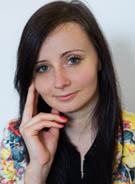
Paulina specialises in EBM. Since 2014 she has cooperated with MedInvest Scanner which assesses investment risk of innovative non-drug medical technologies and carries out due diligence. In the years 2013-2014 she worked as an auditor at HTA Audit which assesses the quality of analyses making up HTA reports. Author of many publications. She carries out training courses in HTA and EBHC. Co-author of projects titled Pro Aegrotis Oncologicis – basic principles, directions and preliminary proposals of changes in the oncology care system in Poland and Indirect costs in HTA – methodology, pilot study and recommendations. Paulina graduated from Public Health at the Jagiellonian University Collegium Medicum. top
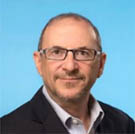
President and CEO at Anchor Bay Consulting
He was Vice President of Global Health Economics, Policy and Payment for Medtronic’s CardioVascular Division. In this role, he was responsible for ensuring that reimbursement is a consideration in every functional area from product conception, through research and development, clinical and regulatory affairs, product launch and marketing. Prior to joining Medtronic, Mr. Sugarman worked at Kaiser Permanente for 19 years initially as the Director of a clinical genetics department, and later as the Director of Medical Technology Assessment. This position involved tracking new drugs, devices and procedures as they moved from experimental to non-experimental, and determining whether they should be part of the medical armamentarium. Critical issues evaluated included safety, efficacy and cost-effectiveness. top
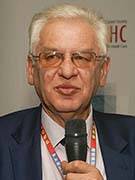
Mieczyslaw is Head of: the Department of Paediatrics, Paediatric Endocrinology, Diabetology, Metabolic Diseases and Cardiology at the Pomeranian Medical University in Szczecin, the Coordination Team for Growth Hormone Application and the Coordination Team for Ultra-rare Diseases. He is a member of the Team for Rare Diseases advising the Minister of Health. He co-founded the Polish Registry of Congenital Malformations. He is the National Consultant in the field of paediatric endocrinology and diabetology. He is the Head of the Polish Society of Paediatric Endocrinology and Diabetology. He is a member of: the General Board at the Polish Paediatric Society, the Social Council at the Western Pomeranian Child Hospice and the Senate of the Pomeranian Medical University in Szczecin. Between 2006 and 2013, he was Head of the Council of Clinicians – the Chief Medical Doctor of the Independent Public Clinical Hospital no. 1 in Szczecin. Mieczyslaw Walczak is a member of the Scientific Council at the Children’s Memorial Health Institute in Warsaw and the Scientific Council at the Institute of Mother and Child in Warsaw. He authored or co-authored over 450 publications and statements from conventions and scientific conferences. He was awarded the Silver Cross of Merit and the Gold Medal for Long Service. He was also distinguished by i.a. the Silver Honorary Badge of the Szczecin’s Griffin and the Józef Polikarp Brudziński Honorary Medal. He graduated from the Faculty of Medicine at the Medical Academy of Poznań. do góry
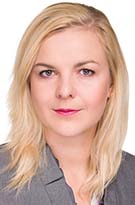
Attorney-at-law, deputy director of the Drug Policy and Pharmacy Department in the Ministry of Health, member of the Tariffs Council advising the President of the Agency for Health Technology Assessment and Tariff System in Poland. Co-author of the commentary to the Act on reimbursement of drugs, foodstuffs for particular nutritional uses and medical devices. top
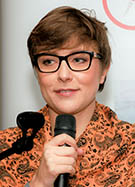
President of CEESTAHC Society, CEO of MedInvest Scanner, Vice President of HTA Consulting. In HTA Consulting, she is responsible for the strategic development of the company through research and services development, new product launch and marketing. Ms. Wladysiuk main and primary aim is to provide high quality information or data based on evidence based medicine or health technology assessment methodology not only in Poland but in Europe and Asia. Key role of her work is to improve patient outcomes through better healthcare decisions. In CEESTAHC she was responsible for the establishing and providing wide connection platform for discussion for all stakeholders in health care system. CEESTAHC mission is to improve the quality of health care systems value with the use of evidence. She graduatd Medical Academy in Lublin and MBA, economy in Kozminski Academy in Warsaw. She was Member of HTAi Annual Meeting in 2006-2008. top
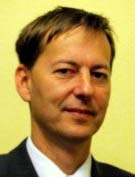
Wojciech is the head of Department of Health Technology Assessment in the Agency for Health Technology Assessment and Tariff System in Poland. Former head of the Pharmaceutical Department at the Central Office of the National Health Fund and former head of the NHF in Dolnośląskie province. He was also the medical director of the Provincial Hospital in Jelenia Góra and hospital in Środa Śląska. He graduated from Wroclaw Medical University and Oskar Lange Wrocław Academy of Economics. do góry
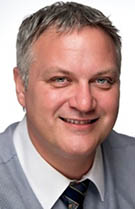
Vladimir, PhD(c), brings more than 20 years of Health Economics technology and business experience. Since 2000, in various roles as Health Economist, Project Manager and Chief Investigator, Vlad has implemented more than 150 health economic models and assessments in the phase 2, 3 and 4 settings, across various disease areas for top 30 global pharmaceutical companies. Vlad worked extensively over the last 6 years in opioid dependence. His PhD research on early vs. late HIV detection in the United Kingdom contributed to revisions in HIV early detection policies made by the UK Parliament in 2011. He co-founded the Serbian Chapter of the International Society for Pharmaco-economics and Outcomes Research (ISPOR) in 2007 and served as President of that chapter until 2012. Vlad is an active member of various ISPOR special interest groups (SIG) (including rare diseases) and is ISPOR Central East Europe Executive Committee Chair 2015-2017. Vlad lectures extensively and serves as a key opinion leader in the areas of HEOR, opioid addiction, HIV, diabetes and other. He also consults and provided HEOR training relating to both medications and medical devices to Ministry of Health, National Insurance Funds or at national congresses in Russia, Turkey, Greece, Egypt, Poland, Czech Republic, Slovakia, Hungary, Croatia, Bosnia & Herzegovina, Slovenia, FYROM, Republic of Srpska and India. do góry
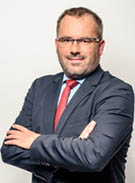
Wojciech has been Head of the Department of HealthCare Benefits at the National Health Fund since 2015. He is an active businessman and a specialist in obstetrics and gynaecology. He worked as a doctor in the Dr Madurowicz Provincial Specialist Hospital in Łódź in 1997-2000. He was head of the Gyneacology and Obstetrics Department in Medical Centre in Pabianice in the years 2010-2011. Since 2011 he has worked on management positions in various medical centres. He graduated from the Faculty of Medicine of the Medical Academy in Łódź. In 2013 he finished postgraduate studies in HealthCare Management at the School of Banking and Management in Cracow. do góry
Previous editions
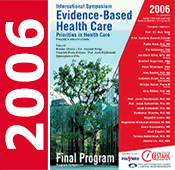
Zobacz edycję 2006
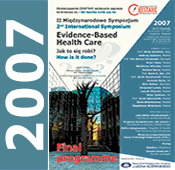
Zobacz edycję 2007
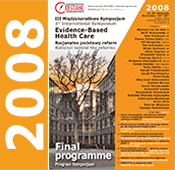
Zobacz edycję 2008
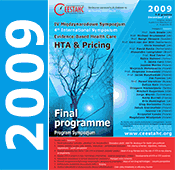
Zobacz edycję 2009
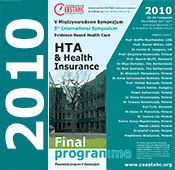
Zobacz edycję 2010
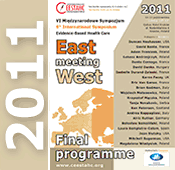
Zobacz edycję 2011
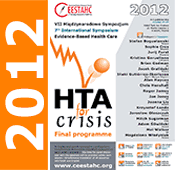
Zobacz edycję 2012
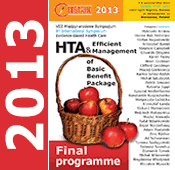
Zobacz edycję 2013
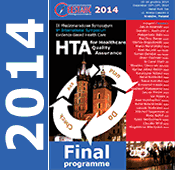
Zobacz edycję 2014
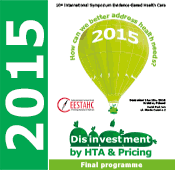
Zobacz edycję 2015
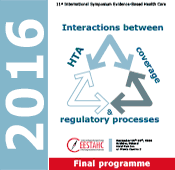
Zobacz edycję 2016
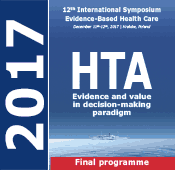
Zobacz edycję 2017
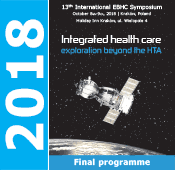
Zobacz edycję 2018
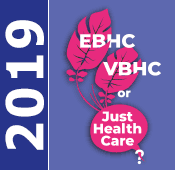
Zobacz edycję 2019
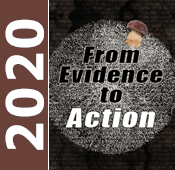
Zobacz edycję 2020

Zobacz edycję 2021
